
Ukraine said it had repelled a day of Russian attacks in and around the ruined eastern city of Bakhmut on Thursday, making small gains while buying time for other “planned actions”.
While Russia boosted its forces in the city and attacked suburbs to the north and south, Ukraine's forces advanced up to one 1km, deputy defence minister Hanna Maliar said on her Telegram channel.
“The defence of Bakhmut and its outskirts is meeting its military objectives,” she said. “As of now, we control the southwestern part of Bakhmut.”
It came after Russia unleashed another round of overnight strikes on the capital, in the latest test of Kyiv’s air defences.
Ukraine claimed it managed to shoot down 29 of 30 missiles fired across the country in the early hours of Thursday. The single missile that evaded Ukraine’s defences – striking an industrial building in the southern region of Odesa – killed one person and injured two more, according to Serhiy Bratchuk, a spokesperson for the region’s military administration.
Loud explosions bellowed throughout Kyiv as Vladimir Putin’s forces hammered the capital for the ninth time this month, in a move marking a stark escalation after weeks of lull. Debris also fell on two Kyiv districts, starting a fire at a garage complex.
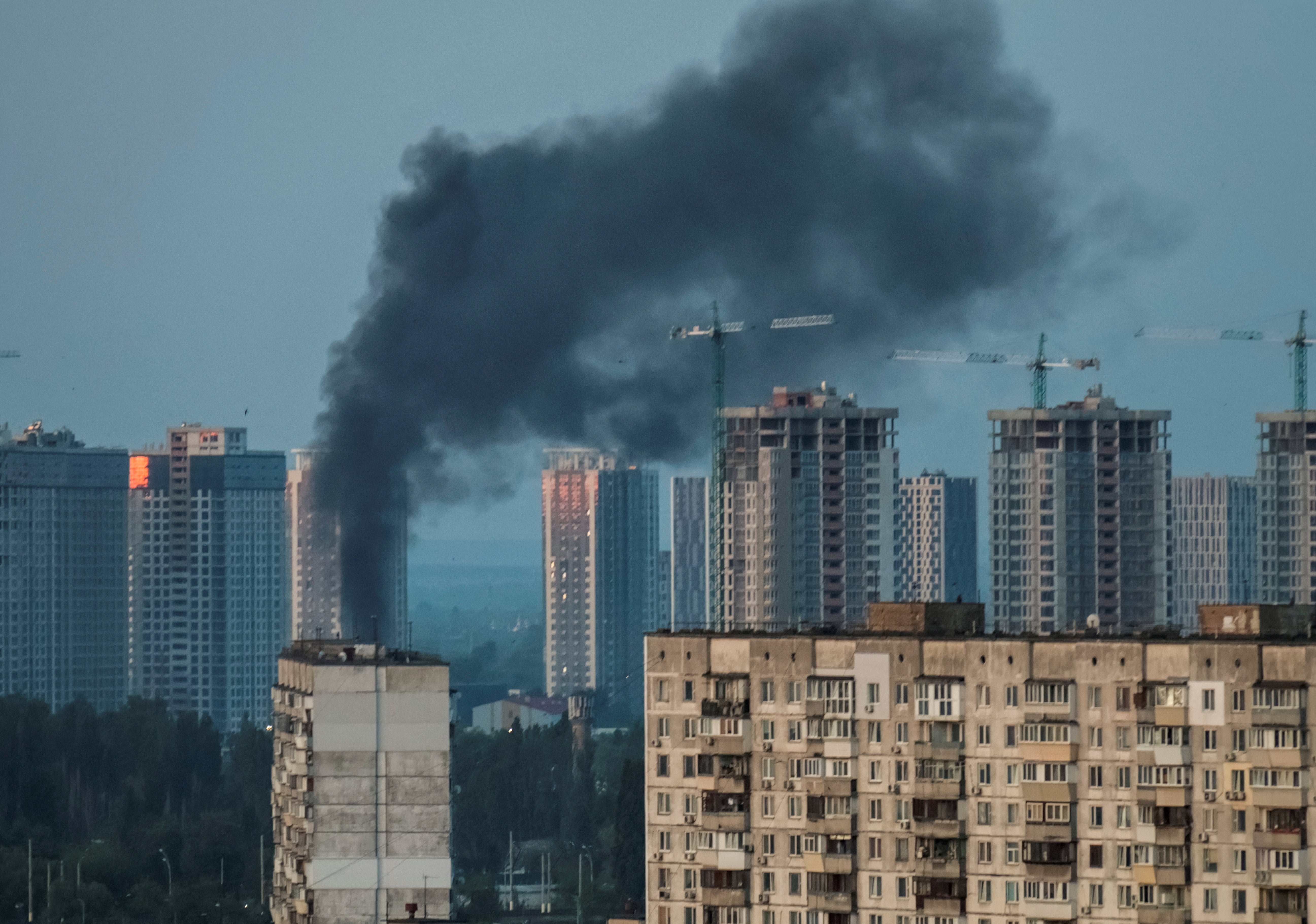
The missiles were launched from Russian sea, air and ground bases, General Valerii Zaluzhnyi, the Ukrainian commander-in-chief, wrote on Telegram. Several waves of missiles were aimed at areas of Ukraine between 2100 local time [GMT 1800] on Wednesday and 0530 [GMT 0230] on Thursday, he added.
Russian forces used strategic bombers from the Caspian region and apparently fired X-101 and X-55-type missiles developed during Soviet times, Kyiv authorities said. Russia then deployed reconnaissance drones over the capital.
In the last major air attack on Kyiv, on Tuesday, Ukrainian air defenses bolstered by complex Western-supplied systems shot down all the incoming missiles, officials said.
That attack used hypersonic missiles, which repeatedly have been touted by the Russian president as providing a key strategic advantage. The missiles, which are among the most advanced weapons in Russia’s arsenal, are difficult to detect and intercept because of their hypersonic speed and manoeuvrability.
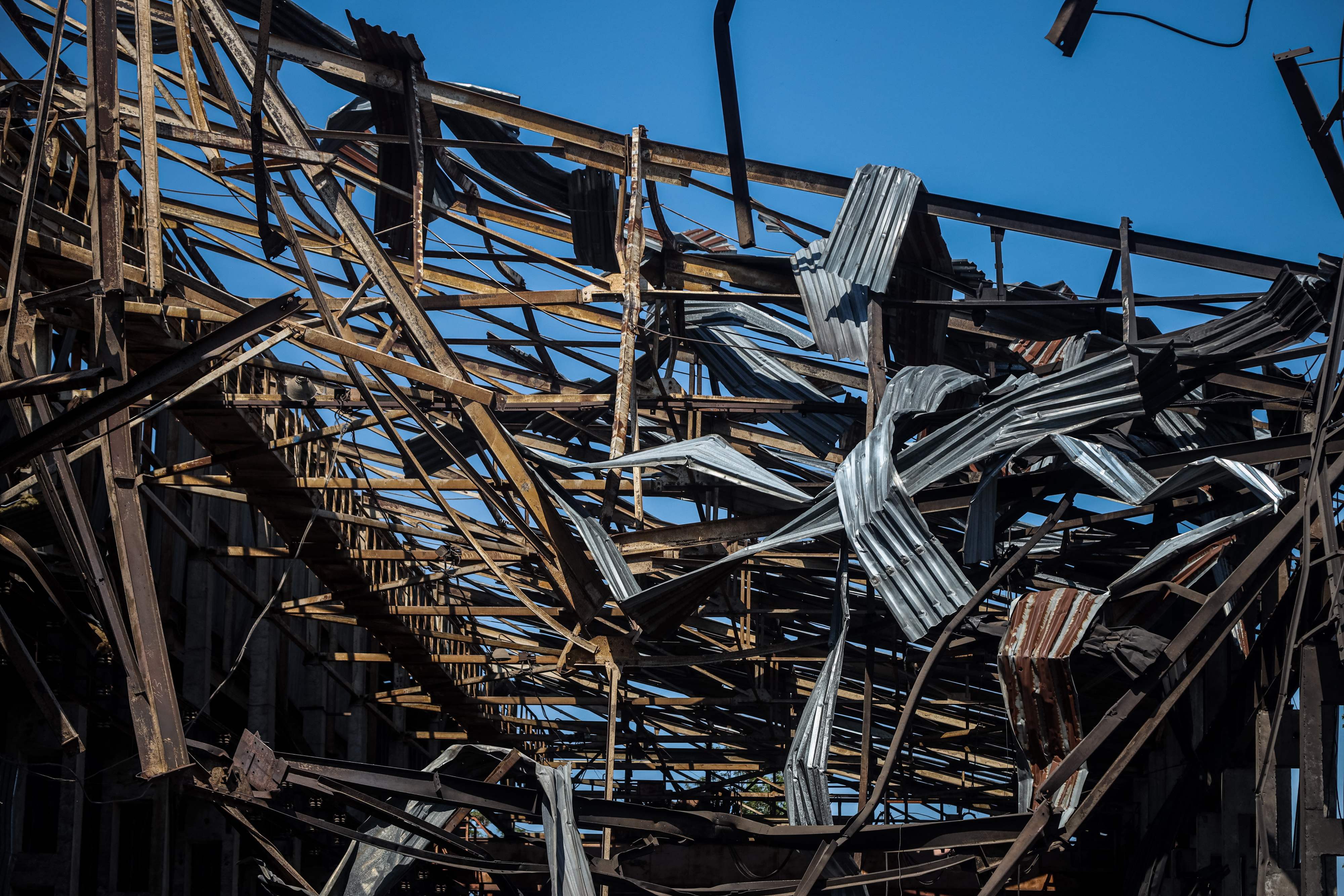
In another blow to the Russian advance on Thursday, Yevgeny Prigozhin, the chief of Russia’s Wagner mercenary group – often referred to as Putin’s private army – accused regular Russian army units of pulling back 570m north of the eastern Ukrainian city of Bakhmut, leaving his own fighters’ flanks exposed. He said his forces has advanced about 400m.
Wagner forces have been spearheading the assault on Bakhmut, one of the bloodiest and longest battles of the war, with some support from the regular army in recent months. Moscow sees Bakhmut, a city of about 70,000 before Russia’s full-scale invasion nearly 15 months ago, as a stepping stone toward capturing the rest of the eastern Donbas region.
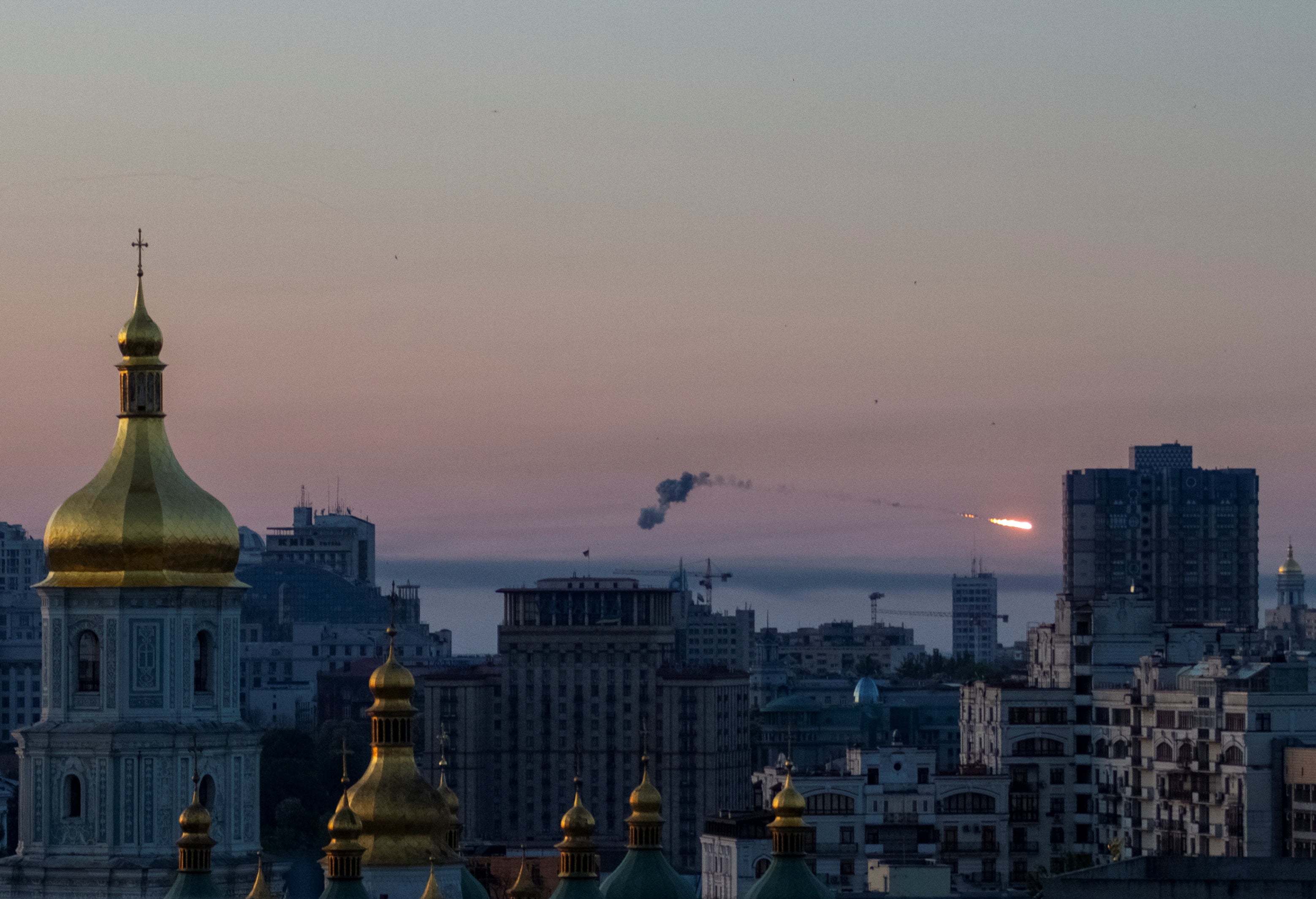
Mr Prigozhin asked Moscow to do all it could to protect its territory in Bakhmut after what he alleged was a withdrawal.
“I am appealing to the top leadership of the Ministry of Defence – publicly – because my letters are not being read,” Mr Prigozhin said in a voice message
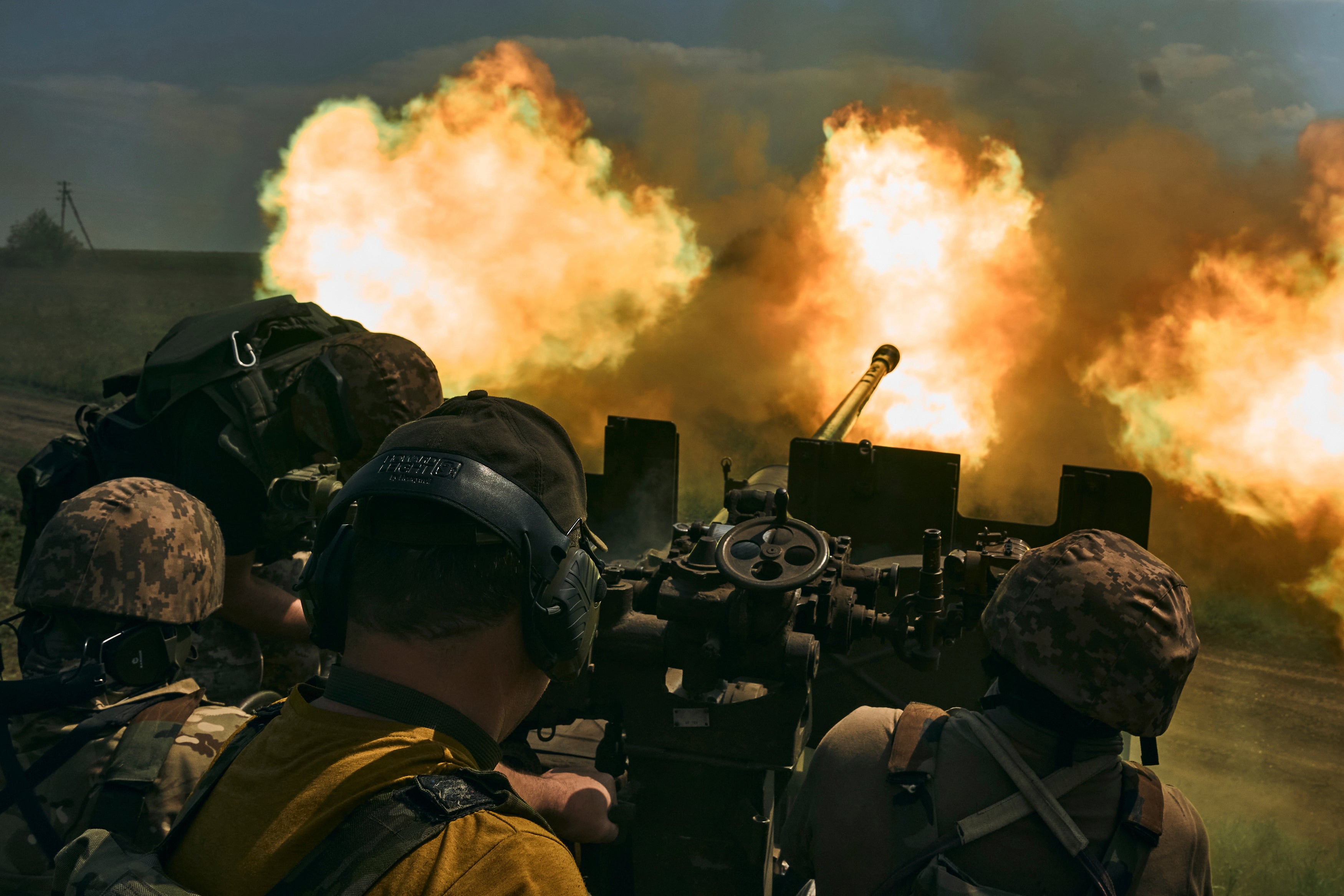
Ukrainian officials have signalled that the advances around Bakhmut are not part of a broader counteroffensive planned by Kyiv to push back the Russian forces.
With Mr Prigozhin repeatedly accusing Russia’s top military brass of not doing enough to back his men, and reports of disquiet among the rest of the Russian leader’s inner circle, appears to be cause for concern for the Kremlin.
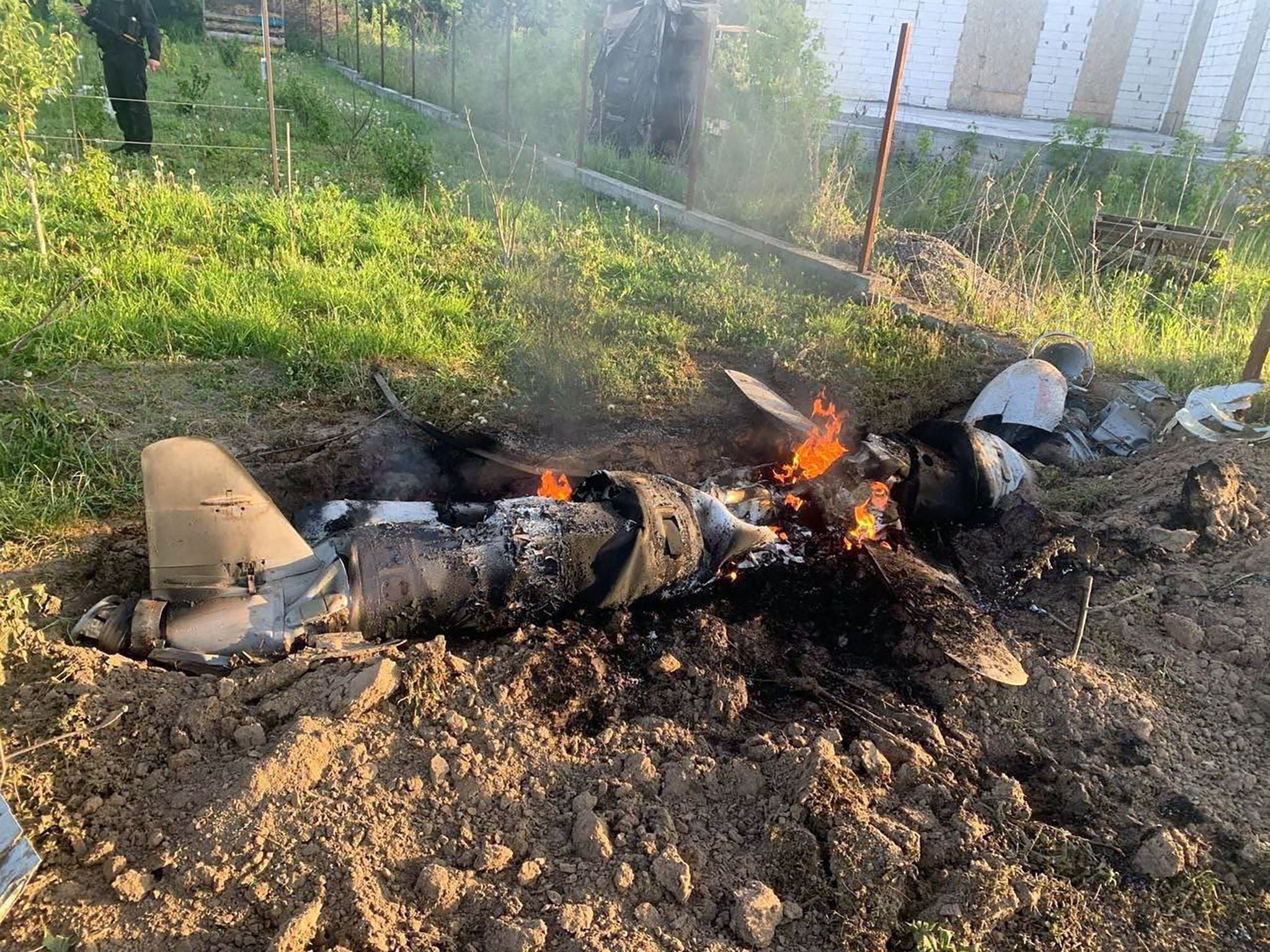
According to a recent update from the British Ministry of Defence (MoD), Russia has banned its own top officials from resigning to avoid “any impression of defeatism”.
Reuters and Associated Press contributed to this report







